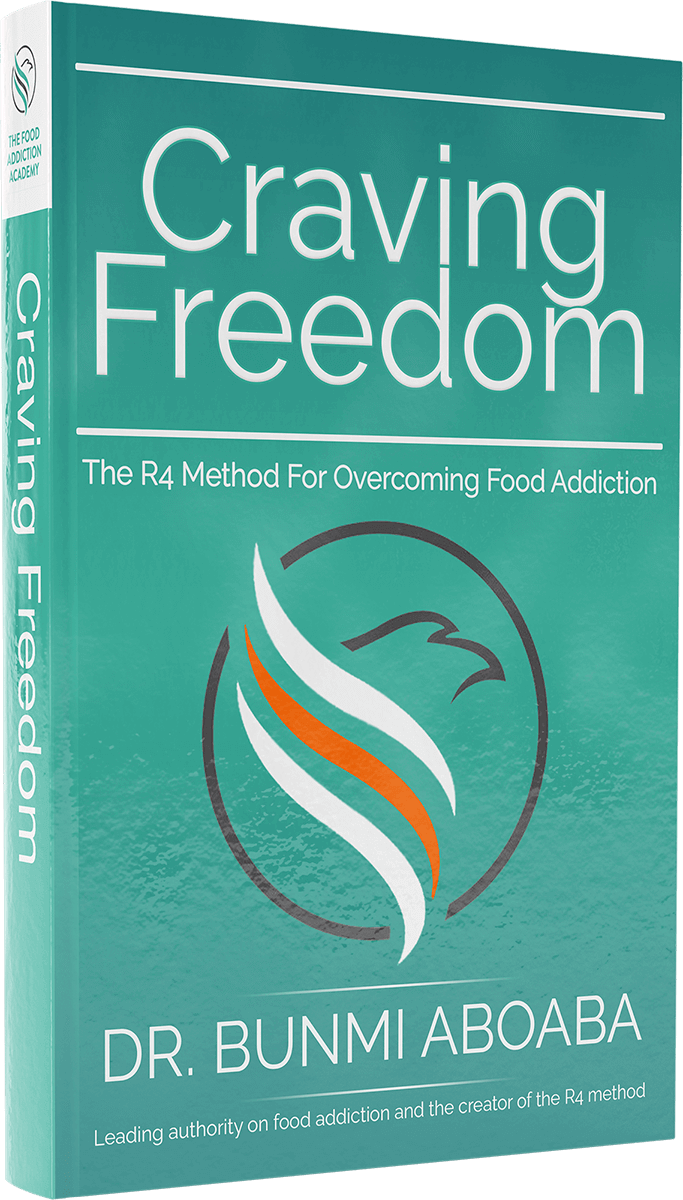Author and food addiction coach, Dr Bunmi Aboaba tells us why many people’s diet journeys are so short-lived.
Did you know that fifty per cent of those who struggle with obesity could be addicted to food? Simply put, food addiction is the compulsive pursuit of a mood change, by binge eating. Those who have are addicted to food will frequently and repeatedly eat. Whenever they have any kind of problem or things get difficult, food will be used to try to change their feelings around it. This behaviour usually persists even when the person is aware of the negative outcome and the physical and psychological damage it can cause.
While not everyone has a food addition, we could all use a little extra help when it comes to understanding how our bodies work and the biggest stumbling blocks for when we want to lose some extra pounds.
15 Black vegan chefs to follow on the ‘gram for a healthier diet and lifestyle
So, how can people who wish to lose weight achieve their goals successfully? We spoke to a leading authority on food addiction and author of Craving Freedom: The R4 method to overcoming Food Addiction Dr Bunmi Aboaba, to tell us the things we should know about dieting and why so many fail.

Read on for Dr Bunmi’s advice and tops.
You actually gain weight when you go on a diet!
On average, you gain 11 pounds every time you go on a diet. What’s worse is when you lose weight, you will also lose muscle and fat. When you regain weight, you pile all the fat back on. You see, muscle burns seven times as many calories as fat, so losing muscle means your metabolism will be slower than when you started the diet. This means you need fewer calories to maintain weight.
Yo-yo dieting damages the metabolism, and that’s why many who are overweight may say that even eating very little, they still put weight on.
Why we should be eating more salads for better health: Try these 3 simple recipes
Willpower is NOT sustainable
This is the top reason why most diets fail. Generally, dieting means eating less, and this triggers hunger. It’s like holding your breath for too long: you can only starve yourself for so long, and our brains and survival mechanism will not allow this.
Research over the years has shown that we have as little as 15 mins of willpower at any one time before it runs out. Ouch!
So, it is little wonder that we cave in when dieting. Time and time again, I hear people say they feel like failures because they have no willpower to stay on their weight loss path.
The brain’s prefrontal cortex controls decision-making, regulating behaviour and impulse control. If the brain’s blood sugar balance is low, then there is a problem. It is fundamental to fuel that part of the brain and helping it function effectively.
Certain habits, such as chronic multitasking, regulating thoughts, deadlines to meet, controlling tempers and poor sleep, deplete our willpower quickly.
“We have as little as 15 mins of willpower at any one time before it runs out. Ouch!”
There are so many ways to replenish our willpower stores but most important is keeping our blood sugars steady. When blood sugars are low, and you are feeling ravenous, willpower no longer exists.
Just imagine willpower is like a battery. When we want to do something or not to do something, it can be called on to see us through. However, if the battery is depleted already, we won’t be able to summon the needed power to stick to a diet. Typically, when that happens, we unconsciously convince ourselves that we didn’t want to do it anyway, or we rationalise that we deserve to indulge in this one-time temptation which then triggers ravenous cravings.

Many just can’t understand why they keep “failing”. Some even say, “There must be something wrong with me” when there isn’t!
How many times have you started the day with great dieting intentions, only to order take away for dinner because you’re exhausted? And then tell yourself that you will start again tomorrow?
So, what can you do?
Use science to control your appetite. By adhering to the following advice, you will have much better success in achieving your dieting and healthy eating goals.
- Eat enough to satiate your appetite with natural, whole and fresh foods.
- Include protein in your breakfast and avoid eating three hours before bed.
- Plan your meals to balance blood sugar. Combine protein, good fat, vegetables, non-starchy carbohydrates and fruit.
- I say it repeatedly, making “being prepared” a high priority will get the results you desire. As they say, “Fail to plan, plan to fail”.
- Fat, protein, and fibre all reduce feelings of hunger and reduce insulin spikes.
- Set realistic goals; slow and steady weight loss wins the race every day, where you don’t need to feel hungry or use willpower.
- Ensure you stay hydrated, as dehydration can often be mistaken for hunger.
- Get enough sleep. Good sleep reduces the stress hormones cortisol and adrenaline.
- Make sure you practice ways to reduce your stress levels, like breathwork, mindfulness, and meditation.
- Find 3- 5 things you are grateful for in the day that help you feel good.
- Make sure to factor in exercise that brings you joy.

Always keep the following in the forefront of your mind: When creating your desired and sustainable weight loss journey, if you are looking for a healthy new habit to adopt, ask yourself, “Can I maintain this for the rest of my life?” Any benefits you get will only last for as long as you maintain the new habit. If you can only maintain it for a short period, any weight you lose will be regained when you stop the healthy habit.
Dr Bunmi Aboaba’s book, Craving Freedom: The R4 method to overcoming Food Addiction is available.
Buy it here.












